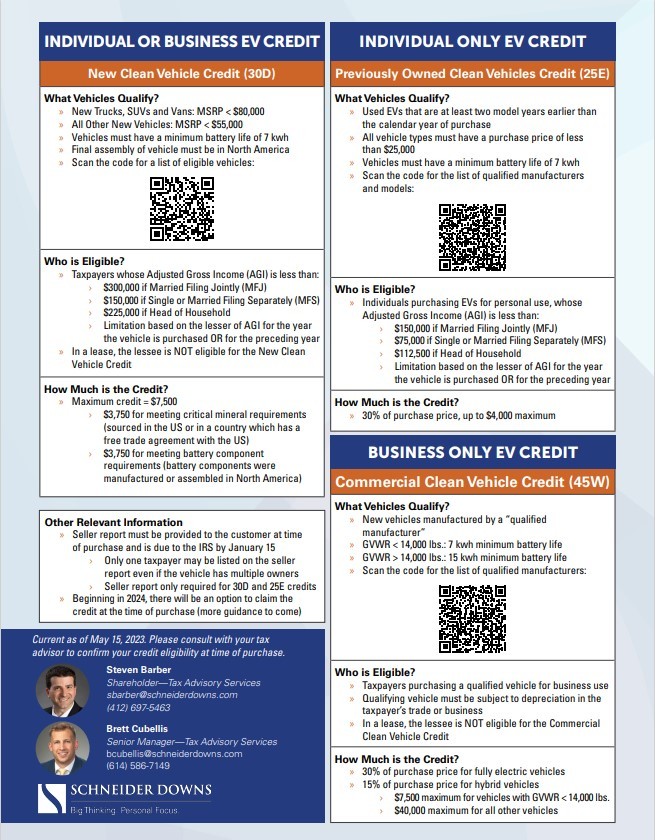Electric vehicle tax credits were revamped under the Inflation Reduction Act (“IRA”). The good news for taxpayers is that these credits will be around for the foreseeable future, as the IRA enacted these credits through 2032. The bad news is that the rules surrounding what vehicles are eligible and which taxpayers qualify became much more convoluted in the process.
There are now essentially three clean vehicle credits taxpayers can claim:
1. New Clean Vehicle Credit – $7,500 max credit
2. Previously Owned Clean Vehicles Credit – $4,000 max credit
3. Commercial Clean Vehicle Credit – $7,500/$40,000 max credit (dependent on vehicle weight)
Each credit has its own nuances to be eligible to claim, such as MSRP price limitations, taxpayer income limitations, battery mineral and/or battery component sourcing requirements, battery capacity requirements, and qualified manufacturer restrictions. As all these requirements are being implemented by the IRS and manufacturers are adapting, the list of eligible clean vehicles is constantly evolving.
EV Tax Credit Reference Guide by Schneider Downs Auto Advisors

This one-page reference guide summarizes many pages of IRS-issued guidance, FAQs and fact sheets, so it may not provide answers to every taxpayer scenario. However, it is a good starting point for consumers considering the purchase of an electric vehicle to determine if they will be eligible for tax savings in connection with their purchase. Please share with your sales team and customers.
For more information on navigating these clean vehicle credits, please contact Brett Cubellis, Steve Barber or any of our Schneider Downs Auto Advisors.
About Schneider Downs Automotive Industry Group
The Schneider Downs Automotive industry group serves dealers of all sizes, from single-point locations to mega-dealerships. Our members cross departments and meet regularly to ensure efficiencies in the services provided to our clients and discuss issues, regulations and trends affecting the automotive industry.
To learn more, visit our Automotive Industry Group page.




